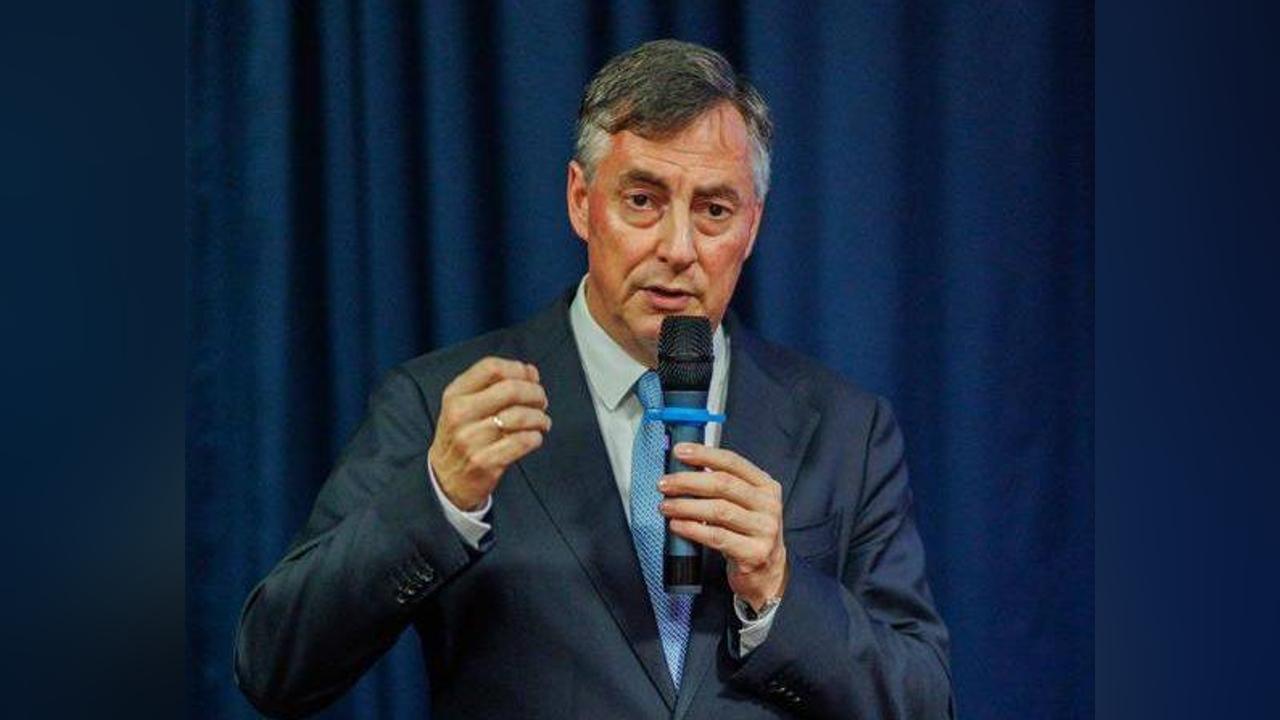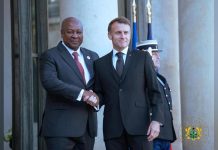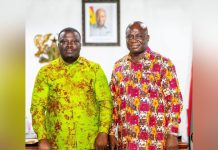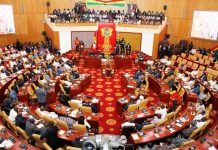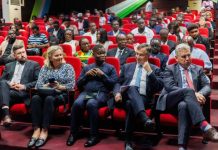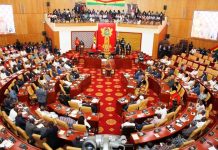Africa-Press – Ghana. Mr. David McAllister, Chair of the Committee on Foreign Affairs of the European Parliament, has reaffirmed Ghana’s position as one of the European Union’s (EU) most trusted and strategic partners in Africa.
He described Ghana as a “beacon of democracy and stability in an increasingly volatile region.”
Mr. McAllister, addressing students of the Ghana Institute of Management and Public Administration (GIMPA) during a youth engagement session on Wednesday as part of a working visit to Ghana, praised Ghana’s democratic resilience and its peaceful political transitions since 1992.
The GIMPA youth engagement formed part of the European Parliament’s Africa outreach programme to promote dialogue with young people on global development, democratic participation, and inclusive governance.
The concept of the event, jointly organised by the EU Delegation to Ghana, GIMPA, and the National Youth Authority, aimed to provide a platform for Ghanaian youth to share their perspectives on the country’s future and the role of international partners in shaping it.
In attendance were Mr Rune Skinnebach, Head of the EU Delegation to Ghana; Mr. Jonas Claes, Head of Political, Press and Information; Alhaji Inusah Mahama, Deputy Chief Executive Officer of the National Youth Authority; and Prof. Ebenezer Adaku, Deputy Rector of GIMPA.
Mr. McAllister said Ghana’s commitment to the rule of law, democratic governance, and regional peace had earned it respect within the European Union and the broader international community.
“Ghana matters in the European Union. You are an esteemed political partner, and we commend your democratic transitions and respect for constitutional governance. In many parts of Africa, that cannot be taken for granted,” he said.
The EU delegation to Ghana comprised six Members of the European Parliament (MEPs) from five different countries and three political groups, who earlier visited Nigeria as part of their West Africa tour.
The visit to Ghana aimed to strengthen political and economic relations and deepen engagement with the country’s youth on shared values of democracy, development, and sustainability.
Mr. McAllister underscored that the EU-Ghana partnership was not only rooted in trade and development but also in shared values such as democracy, human rights, and the rule of law.
He cited the annual EU-Ghana Partnership Dialogue as a key platform through which both sides review progress on mutual priorities and strengthen cooperation.
Mr McAllister highlighted the Economic Partnership Agreement (EPA) between Ghana and the EU, which has been in force since 2016, as a significant milestone in trade relations.
The EPA, he explained, allows Ghanaian exporters duty-free and quota-free access to the EU market, while Ghana gradually opened its market to 80 percent of EU products from 2021 to 2029.
“This agreement provides Ghana with a fair and balanced framework to compete regionally and globally. The EU continues to support its implementation through development cooperation and financial assistance,” Mr. McAllister stated, noting that the EU remained Ghana’s largest trading partner and development donor.
He further outlined the EU’s joint programming strategy in Ghana, aligned with flagship global initiatives such as the European Green Deal, the Global Gateway, the EU Gender Action Plan, and the EU Youth Action Plan.
These frameworks, he said, guide cooperation in promoting sustainable cocoa production, expanding energy access, strengthening vaccine and pharmaceutical production, and addressing climate and security challenges in northern Ghana.
On the Global Gateway initiative, Mr. McAllister explained that the EU sought to go beyond traditional donor-recipient relations to foster political and economic cooperation built on equality and sustainability.
He cited the EU’s investment in local vaccine production as a key example, following a visit to a vaccine factory under development in Ghana.
The initiative, he said, represented the EU’s commitment to helping Ghana achieve self-reliance in public health and pharmaceutical production.
For More News And Analysis About Ghana Follow Africa-Press


